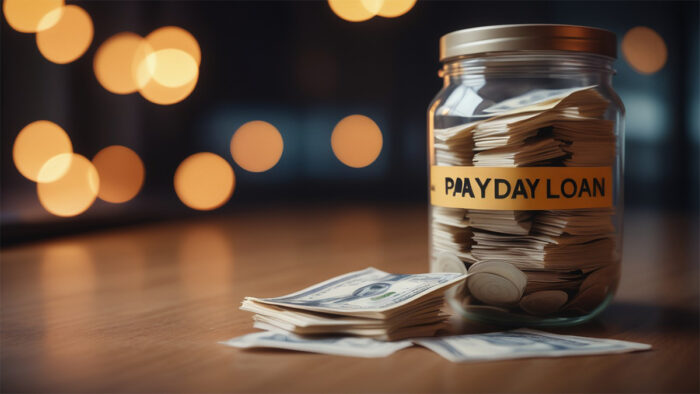Are you low on cash? Do you need any emergency money? If you fall into any of these categories, or any category that needs urgent money, all you need to do is apply for a payday loan. This article aims to show you everything you need to know about payday loans. Sit back and enjoy your reading.

What is a Payday Loan?
A payday loan is a short-term, high-cost loan that is typically due on the borrower’s next payday. These loans are also known as cash advance loans, check advance loans, or deferred deposit loans. Payday loans are often used by individuals who find themselves in need of quick cash to cover unexpected expenses or financial emergencies.
How Does a Payday Loan Work?
Payday loans work in different ways than personal and other consumer loans. Currently, you can get a payday loan online, depending on the area you live in. Some people don’t know that payday loans come with interest, which is also known as financial charges. If you lend an exact sum of money, a payday lender will confirm your income, check your account information, and deliver cash then.
Once you ask for payday loans, your account gets credited. Always remember the due date you are supposed to pay back the loan borrowed. Because if you fail to pay by the due date, the interest will start to increase automatically. Instead of the main interest, you end up paying more than you even borrowed.
How Much do Payday Loans Cost?
According to the Consumer Financial Protection Bureau, payday loans naturally cost in the range of $10 to $30 for every $100 borrowed. If $15 is the fee for every $100 borrowed, that means your total repayment will be $115.
If you are not able to repay the loan in full on the due date, then the lender may decide to add a fee to extend the due date. The borrowers can end up owing more interest than the original borrowed amount if this cycle repeats. That is the reason why payday loans are dangerous.
What Happens When You Can’t Pay Back Payday Loans?
It is possible you may end up not paying back the loan you borrowed, and when that happens, it can lead you to jail. You will be charged with an inability to pay a debt, and you can be sued. You will face a 1% penal charge every month for nonpayment on the loan from 31 days past due.
Requirements to Qualify for Payday Loans
The requirements needed to qualify for a payday loan are as follows:
- You must be 18 or older.
- Have an active checking account with records that you have made use of the account for validated transactions.
- Proof of income: Before you can apply for payday loans, you have to show proof of your income. That means that you must have a steady and good-paying job so that you will be able to pay the money you have borrowed.
- You must have a valid email address because you might be sent some hints or even links to where you can apply for loans.
How to Get a Payday Loan
Are you interested in applying for a payday loan? If so, then you should be able to get a payday loan by following this guide one after the other. They are as follows:
- Compare alternatives: Make sure that getting a payday is better than any alternative because it can cause financial damage, even if it means being late on your other financial duties.
- Check payday lender reviews: Check what other borrowers have said about the lender before you get a payday loan.
- Have the necessary documents: You need an active bank account to qualify for a payday loan, a government-issued ID, and any proof of income like a pay stub. You must not be less than 18 years old. Some lenders also need a Social Security number.
- Look for the disclosures: Have access to some information before you borrow, no matter where you live or how urgently you need the money. However, payday loan rules may differ by state. Information like the amount you’re expected to repay, the lender’s license to do business in most states, the amount the payday loan fee is, and what APR it associates with.
- Have a plan to repay the loan. You determine how you will refund the loan in full on or before the due date. And making your other regular expenses regular is the key to avoiding a payday loan debt trap.
FAQs
Is a Payday Loan Secured or Unsecured?
Payday loans are unsecured, meaning you do not need any collateral. There is no need for you to pledge your car or other property to qualify.
Is a Payday Loan Installment or Revolving?
Payday loans are not installment or revolving. These loans are paid all at once, long after they are borrowed. An installment loan is paid over time in lesser amounts, and revolving credit accounts, including credit cards, permit you to borrow and repay money as you need it.
How do Payday Loans Affect Credit?
Refunding a payday loan does not typically build credit. A lot of payday lenders don’t account for on-time payments to credit bureaus. So the loan can never improve your credit score.
However, if you refuse to pay the loan back, your credit can be damaged. The payday lender can report the default to the credit bureaus or even sell the debt to a collection agency that will do so, which will affect your score negatively.



